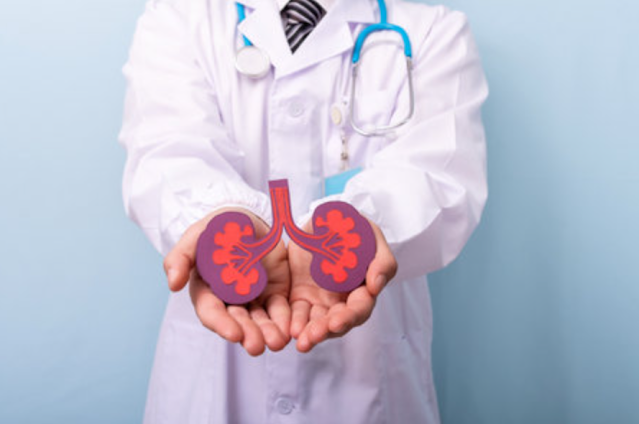Guardians of Vitality: Four Essential Tips to Safeguard Your Kidney Health
Guardians of Vitality: Four Essential Tips to Safeguard Your Kidney Health
The kidneys, two small but mighty organs located in the lower back, are unsung heroes of the human body. Their primary role in filtering waste and excess fluids from the bloodstream makes them critical for maintaining overall health. Unfortunately, kidney disease is a silent epidemic that affects millions worldwide, often going undiagnosed until it reaches an advanced stage. The good news is that many kidney issues are preventable with the right knowledge and care. In this comprehensive article, we will explore the importance of kidney health, discuss the risk factors for kidney disease, provide four essential tips to protect your kidneys, and highlight Nobel-worthy advancements in nephrology that continue to shape our understanding of kidney care.
The Significance of Kidney Health
Before we dive into protecting your kidneys, it's essential to understand why these organs are so crucial to your well-being:
Filtration and Waste Removal: The kidneys filter waste, excess water, and electrolytes from your blood, ensuring a balanced internal environment.
Blood Pressure Regulation: They help regulate blood pressure by controlling the volume of blood and the amount of sodium retained or excreted.
Red Blood Cell Production: Kidneys produce erythropoietin, a hormone that stimulates the bone marrow to produce red blood cells.
Acid-Base Balance: They maintain the body's acid-base balance, which is crucial for overall health.
Detoxification: Kidneys help eliminate toxins, drugs, and metabolic byproducts from your body.
Risk Factors for Kidney Disease
Several factors can increase your risk of kidney disease, including:
- Diabetes: High blood sugar levels can damage the kidneys over time.
- Hypertension: High blood pressure can strain the kidneys and lead to kidney disease.
- Family History: A family history of kidney disease may increase your risk.
- Heart Disease: Cardiovascular issues can affect kidney health.
- Age: The risk of kidney disease tends to increase with age.
- Obesity: Excess weight can contribute to kidney problems.
- Smoking: Smoking is associated with an increased risk of kidney disease.
- Certain Medications: Some medications can harm the kidneys when used excessively or for extended periods.
- Dehydration: Insufficient fluid intake can strain the kidneys.
Four Essential Tips to Protect Your Kidneys
- Maintain Healthy Blood Pressure:
- Monitor Your Blood Pressure: Regularly check your blood pressure, and if it's high, work with your healthcare provider to manage it effectively.
- Follow a Heart-Healthy Diet: Adopt a diet low in sodium and saturated fats. Focus on whole grains, fruits, vegetables, lean proteins, and healthy fats.
- Limit Alcohol: Drink alcohol in moderation, as excessive alcohol consumption can raise blood pressure.
- Exercise Regularly: Engage in physical activity most days of the week to help control blood pressure and maintain overall health.
- Manage Blood Sugar Levels:
- Control Your Diabetes: If you have diabetes, work closely with your healthcare team to manage your blood sugar levels through medication, diet, and lifestyle changes.
- Monitor Glucose Levels: Regularly monitor your blood glucose levels as advised by your healthcare provider.
- Eat a Balanced Diet: Focus on foods that help stabilize blood sugar, such as whole grains, lean proteins, and plenty of fiber.
- Stay Active: Regular physical activity can improve insulin sensitivity and help control blood sugar levels.
- Stay Hydrated and Mindful of Medications:
- Hydrate Adequately: Drink enough water to stay well-hydrated, but don't overdo it. Consult your healthcare provider for guidance on your specific fluid needs.
- Medication Awareness: Be aware of the potential effects of medications on your kidneys. Discuss any concerns with your healthcare provider, and only use medications as prescribed.
- Adopt a Kidney-Friendly Diet:
- Reduce Sodium Intake: Limit your salt intake to help manage blood pressure. Avoid highly processed and salty foods.
- Moderate Protein Consumption: Excessive protein can strain the kidneys. Choose lean protein sources and consult with a dietitian if needed.
- Eat Heart-Healthy Fats: Opt for unsaturated fats found in olive oil, avocados, and fatty fish.
- Monitor Phosphorus and Potassium: If you have kidney disease, work with a dietitian to manage your phosphorus and potassium intake.
- Stay Balanced: Maintain a balanced diet rich in fruits, vegetables, whole grains, and lean proteins to support overall health.
Nobel-Worthy Advancements in Nephrology
Nephrology, the branch of medicine that focuses on kidney health, has seen remarkable advancements that contribute to our understanding of kidney care and disease prevention:
- Biomarker Research: Ongoing research explores biomarkers that can predict kidney disease risk, allowing for early intervention and personalized care.
- Precision Medicine: Nobel-worthy efforts may lead to personalized treatments for kidney disease, tailored to an individual's genetic and health profile.
- Telehealth: Telemedicine and remote monitoring are transforming kidney care, making it more accessible and convenient for patients.
- Regenerative Medicine: Research into regenerative therapies holds promise for repairing kidney damage and improving kidney function.
Conclusion
Protecting your kidneys is essential for maintaining overall health and preventing kidney disease. By following these four essential tips and staying informed about kidney health, you can reduce your risk of kidney issues and enjoy a healthier, more vibrant life. Nobel-worthy advancements in nephrology continue to shape the future of kidney care, offering hope for improved prevention and treatment strategies.


















No comments